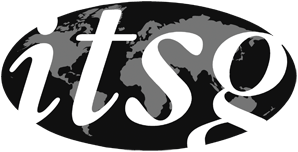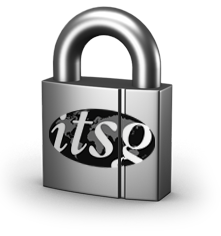INTRODUCTION
With the advent of Brexit, Ireland is becoming the European capital location of choice for a growing number of multinational companies. The fund industry, in particular, gravitates towards Ireland from which products can be passported into the other E.U. member states. As companies are increasingly required to demonstrate substance and presence in Europe, the current trend is for multinationals to second one or two senior members to Ireland to start up the Irish operation. Therefore, their tax position becomes an important part of the package that is offered to attract key personnel to Ireland.
The Irish tax system has two features that make it attractive for foreign executives:
- Ireland has a favourable tax regime for foreign domiciled individuals. This regime (which is known as the remittance basis) means that Ireland is an attractive location for foreign nationals as it should be possible for them to structure their tax affairs so that they pay tax only on Irish source income. Therefore, a highly paid employee who is seconded to Ireland from abroad could maintain foreign investments, rental properties, share portfolios and even foreign employment income, all of which is not taxable in Ireland until remitted.
- Although individuals resident in Ireland are taxable on Irish source income, there is a particular tax break for most employees seconded to Ireland from abroad. This tax break, known as the Special Assignee Relief Programme (S.A.R.P.), provides that 30% of an employee’s income above a certain threshold is tax free.
The combination of the rules for foreign domiciled individuals and the availability of S.A.R.P. relief makes Ireland an attractive location for key employees.
This article focuses on the employer’s perspective. When a foreign business is setting up operations in Ireland and seconding key employees to Ireland, they will want to maximise the tax efficiencies in Ireland in order to provide their employees with an attractive total compensation package.
The foreign employer also must be mindful that if they have directors or employees working in Ireland, even on short-term assignments, the employer may be required to operate Irish payroll withholding taxes on the portion of that employee’s salary relating to his/her work days spent in Ireland.
EMPLOYER WITHHOLDING OBLIGATION
The employer’s withholding obligations vary depending on whether the employee is posted to Ireland temporarily or on a permanent basis. Therefore, the first step is for the employer to consider what its business needs are in Ireland and whether a temporary or permanent assignment is appropriate.
The key payroll tax issues for foreign employers sending individuals to work in Ireland, and a discussion of the S.A.R.P. relief available for employees seconded to Ireland, are set out below.
Coming to Ireland to work – employer’s obligations
When individuals come to work in Ireland, it is necessary to consider both the employer’s perspective and the employee’s perspective.
Understanding the employer’s obligation is important when employees are sent to work in Ireland. Irrespective of the individual’s tax residence position, if an individual comes to Ireland to work and carries out duties of employment in Ireland, that employment is chargeable to income tax in Ireland and is within the scope of the Irish P.A.Y.E. (Pay As You Earn) system, which obliges the employer to deduct payroll taxes. The length of time spent in Ireland by the employee will determine the requirements for the employer to operate withholding taxes under the P.A.Y.E. system.
The individual’s tax residence position is considered separately. If an employee becomes Irish resident, he or she may face Irish tax exposure even though the Irish Revenue may have released the employer from the obligation to operate Irish payroll taxes. Similarly, where P.A.Y.E. has been applied, this does not necessarily mean that relief under a double tax treaty will not be available for the employee.
Temporary assignment/short-term business visitors to Ireland
The Irish Revenue have recently provided clarification on Revenue practice regarding the obligation to operate P.A.Y.E. for temporary assignees and short-term business visitors to Ireland. This was updated on 17 April 2018 and some of the content has not yet “tried and tested”. Ongoing feedback is expected from the Irish Revenue in response to practical issues that will inevitably arise from applying the new Revenue practice.
The rules for temporary assignees and short-term business visitors have been modified depending on the length of time the individual has a presence in Ireland. The charts below provide an overview of the tax position depending on whether the employee has been present in Ireland for one tax year, two consecutive tax years, or more than two consecutive tax years. As will be seen, one set of time limits applies to employees resident in a jurisdiction with which Ireland has a double tax agreement (D.T.A.) in place and another set applies to employees resident in a jurisdiction with which Ireland does not have a D.T.A. in place.
YEAR 1: Short-term business visitors:
Does Irish P.A.Y.E. have to be operated?

YEAR 2: Short-term business visitors:
Does Irish P.A.Y.E. have to be operated?

YEAR 3: Short-term business visitors:
Does Irish P.A.Y.E. have to be operated?

An in-depth analysis is set out below with respect to the three different categories mentioned in the tables: (i) P.A.Y.E. must be operated in Ireland, (ii) P.A.Y.E. does not have to be operated in Ireland, and (iii) Further analysis is required.
P.A.Y.E. must be operated
In the following circumstances, Irish P.A.Y.E. must be operated by the employer:
- The employee is not tax resident in a D.T.A. country and spends 31 or more working days in Ireland in the tax year.
- The employee is not tax resident in a D.T.A. country and has spent more than two tax years in Ireland. Even if the employee spends only one day in Ireland in the third year, P.A.Y.E. must be operated.
Circumstances where P.A.Y.E. need not be operated
- The employee is resident in a D.T.A. country and spends up to 60 work days in Ireland in the tax year.
- The employee is resident in a D.T.A. country and spends two consecutive tax years in Ireland and has up to 60 Irish work days across two consecutive tax years.
- The employee is not resident in a D.T.A. country and spends up to 30 work days in Ireland in the tax year.
- The employee is not resident in a D.T.A. country and spends up to 30 work days across two consecutive tax years.
The Irish Revenue have clarified that the counting of days begins from 1 January 2018 and the new Revenue practice has retroactive effect beginning in 2018. This is an important statement for employers as previously the counting of days did not have a cumulative effect year on year.
Further analysis required and revenue submission
Where a temporary assignee exercises the duties of employment in Ireland for more than 60 work days, either in one tax year or cumulatively over two tax years, no automatic relief exists regarding the obligation to withhold Irish P.A.Y.E. Further analysis is required.
Where certain conditions are satisfied, an employer can apply to the Irish Revenue for relief from the obligation to operate Irish P.A.Y.E. The conditions are as follows:
- The assignee is resident in a country with which Ireland has a D.T.A. and is not resident in Ireland for tax purposes; and
- The assignee suffers withholding taxes at source in their “home” country on the income attributable to the performance of the duties of the foreign employment in Ireland; and
- There is a genuine foreign office or employment; and
- Subject to the discussion below, the remuneration is paid by or on behalf of an employer who is not a resident of Ireland; and
- Subject to the discussion below, the remuneration is not borne by a permanent establishment which the foreign employer has in Ireland.
Additional analysis where the employer is not Irish resident
The Irish Revenue will not accept that condition relating to a foreign employer is met where the individual is working for an Irish employer in any of the following situations:
- The assignee is replacing a member of the staff of an Irish employer;
- The assignee is supplied and paid by an agency outside Ireland to work for an Irish employer; or
- The duties performed by the assignee are an integral part of the business activities of the Irish employer.
The Irish Revenue guidance comments that in determining whether the duties of the assignee will be considered an integral part of the business activities of an Irish employer, all relevant factors must be considered, including:
- Who bears the responsibility or risk for the results produced by the assignee,
- Who authorises, instructs or controls where, how and or when the work is performed,
- Who does the assignee report to or who is responsible for assessing performance, and
- Whether the role or duties performed by the assignee are more typical of the functions of the overseas employer or of the Irish entity.
If the answers to these questions demonstrate that the work carried out by the assignee is integral to the Irish office, relief will not apply. The employer must operate Irish P.A.Y.E. for the compensation related to days worked in Ireland.
If the individual has an ongoing requirement to return to Ireland over a number of years, he or she will not qualify for an automatic exemption from Irish P.A.Y.E. regardless of the number of days spent in Ireland in a particular year. Furthermore, where a role is undertaken by a series of different individuals on a rotational basis, Irish P.A.Y.E. should be considered with respect to that role. As P.A.Y.E. must be operated for each individual employee fulfilling that role.
Additional analysis where the employer maintains Irish permanent establishment
The release from the obligation to operate Irish P.A.Y.E. will not be granted where the remuneration is paid by a foreign employer and the cost is recharged to an Irish employer. When determining if remuneration is recharged by a foreign employer to an Irish entity, consideration should be given to the relationship between the fees charged and the remuneration, employment benefits and employment costs of the assignee. If the fee equals these costs or is a charge with a profit element computed as a percentage of that remuneration, this would be indicative that remuneration is directly recharged.
Note that even if the remuneration is paid by a foreign employer and charged in the accounts of a foreign employer, this factor alone does not release the employer from the obligation to operate Irish P.A.Y.E..
Practical application
If there is a recharge cost operated so that the Irish entity ultimately bears the cost of the remuneration, the relief does not apply. Consequently, whether the employer will have a requirement to operate Irish P.A.Y.E. even if the duties performed by the assignee are not an integral part of the business activities.
In circumstances where it is clear that the remuneration is not borne by a permanent establishment which the foreign employer has in Ireland, it will be necessary to analyse the nature of the work carried out by the assignee in Ireland in order to determine whether it is integral to the business of the Irish employer.
As a submission is required in these cases before relief from the obligation to operate Irish P.A.Y.E. is allowed, detail will be required within the submission as to the specific employee duties performed by the non-resident individual. Typically, the Irish Revenue request a statement from the company that no cost is borne directly or indirectly by the Irish entity.
In conclusion, the updated guidance provides an element of clarity around the Irish Revenue’s position in relation to short-term business visitors to Ireland. Nonetheless, because the guidance is detailed, ongoing tweaks are anticipated as submissions are received by affected employers. Until then, the guidance is broadly untested for employers in a practical sense.
Minimising Irish P.A.Y.E. exposure
Non-Irish domiciled individuals who are tax resident in Ireland are not subject to Irish income tax on foreign employment income attributable to non-Irish work day duties. It, therefore, may be appropriate to have two contracts of employment; one Irish contract for Irish duties and a foreign contract for foreign duties which are carried on abroad. Provided all of the foreign duties under the foreign contract are carried on outside of Ireland and the payment with respect to this contract is paid outside of Ireland, the earnings from foreign duties would not be subject to tax while the individual is seconded to Ireland. Those earnings are taxed only when remitted to Ireland.
RELOCATING TO IRELAND – S.A.R.P.
In 2012, S.A.R.P. was introduced as a mechanism to make Ireland attractive for people with key skills. Initially due to expire in 2014, the relief programme has been extended to the year 2020. It provides generous relief for individuals that qualify for the programme.
The relief is also available to Irish citizens returning home once all conditions have been satisfied.
S.A.R.P. Overview
Section 825C Taxes Consolidation Act (T.C.A.) 1997 provides for income tax relief on a portion of income earned by certain employees assigned from abroad to work in Ireland by a “relevant employer” or for an “associated company” in Ireland during any of the tax years 2012 to 2020.
For the years 2012, 2013 and 2014, S.A.R.P. provided relief from income tax for 30% of the employee’s income between €75,000 (lower threshold) and €500,000 (upper threshold). The upper income threshold of €500,000 was removed in 2015 so that the relief is unlimited. However, the income is not exempt from the charge to Universal Social Charge (U.S.C.) or Ireland’s social insurance charge (P.R.S.I.).
The relief can be claimed for a maximum period of 5 consecutive years commencing with the year of first entitlement. Employees who qualify for relief under section 825C T.C.A. 1997 may also receive, free of tax, certain expenses of travel and certain costs associated with the education of their children in Ireland.
Where conditions for the relief are satisfied, an employer must file a Form SARP 1A for each employee applying for S.A.R.P. relief. The form must be submitted to the Irish Revenue within 30 days of the employee’s arrival in Ireland to perform the duties of his or her employment in Ireland.
Definitions and conditions
A number of conditions must be met by the employer and employee in order to claim the relief. To understand the conditions, it is necessary to clarify two principal definitions associated with the relief.
The first is “Relevant Employer”. This term means a company that is incorporated and tax resident in a country with which Ireland has a D.T.A. or a Tax Information Exchange Agreement (T.I.E.A.). The second is “Associated Company”. This term means a company that is associated with the Relevant Employer. Under section 432 T.C.A. 1997, a company is treated as an Associated Company at a particular time if, at that time or at any time within the previous year, either company has control over the other, or both companies are under the control of the same person or persons.
The relief can be claimed by an individual who is a Relevant Employee, i.e., who meets all of the following conditions:
- Immediately before being assigned to work in Ireland, the individual worked outside Ireland for a minimum period of 6 months (12 months for employees who were assigned in 2012, 2013 or 2014).
- Arrives in Ireland in any of the tax years 2012 to 2020, at the request of his or her Relevant Employer, to perform, in Ireland, duties of his or her employment for that employer or to take up employment in Ireland with an associated company of that relevant employer and to perform duties in Ireland for that company.
- Performs duties referred to above for a minimum period of 12 consecutive months from the date he or she first performs those duties in Ireland. An employer should only certify that the employee will meet this condition where the contractual arrangements are that the individual will perform duties for the 12-month minimum period.
- Was not tax resident in Ireland for the five tax years immediately preceding the year of his or her arrival in Ireland to take up employment in Ireland.
- Is tax resident in Ireland for all tax years for which the relief is claimed.
- Earns a minimum basic salary of €75,000 per annum excluding all bonuses, commissions or other similar payments, benefits, or share-based remuneration.
Where an individual is not tax resident in Ireland in the year of arrival, he or she may elect to be resident in Ireland in that year provided he or she satisfies the conditions set out in section 819(3) T.C.A. 1997. However, that individual should bear in mind the consequences of such an election. For example, an election to be resident in Ireland may bring some or all of the individual’s foreign income for that year within the charge to tax in Ireland.
The S.A.R.P. threshold
As previously noted, before an individual is eligible to claim the relief, he or she must earn “relevant income” of not less than €75,000 per annum. This means that his or her basic salary before benefits, bonuses, commissions, share-based remuneration and other income from the Relevant Employer or Associated Company must not be less than €75,000.
Calculation of the relief
The amount of the relief is 30% of the individual’s relevant income in excess of €75,000. Where, for a tax year, a relevant employee satisfies the conditions and makes a claim for the relief, he or she will be entitled to have the tax relief granted by way of calculating what is known as the “specified amount” and relieving that specified amount from the charge to income tax. The specified amount is determined under the following formula:
Amount A – Amount B × 30%
For this purpose, Amount A is the amount of the relevant employee’s income, profits or gains from his or her employment in Ireland with a Relevant Employer or Associated Company. Excluded from Amount A are expenses and amounts not assessed to tax in Ireland. It is reduced by any superannuation contributions made by the relevant employee. In addition, where the relevant employee is entitled to double taxation relief in relation to part of the income, profits or gains from the employment, that part of the income is also excluded from Amount A. For the years 2012, 2013 and 2014, where this amount exceeds €500,000, Amount A is capped at €500,000 (the “upper threshold”). No cap applies for the year 2015 and subsequent years. Also, for the purpose of the computation Amount B is €75,000.
In sum, with effect from the tax year 2015, the specified amount is 30% of the individual’s income over €75,000. For the years 2012, 2013 and 2014, the specified amount is 30% of the individual’s income between €75,000 and an upper threshold of €500,000.
Once the individual meets the €75,000 threshold as previously defined, all remuneration in excess of €75,000, including benefits, bonuses, commissions, share-based remuneration and other income from the Relevant Employer or Associated Company qualify for S.A.R.P. However, any amount on which relief for pension contributions has been obtained continues to be excluded as are amounts paid with respect to expenses.
The specified amount is exempt from income tax but is not exempt from the U.S.C. In addition, the specified amount is not exempt from P.R.S.I. unless the employee is relieved from paying Irish P.R.S.I. under either an E.U. Regulation or under a bilateral agreement with another jurisdiction.
Example
Rose is a relevant employee who earns €650,000 in 2018.
Under S.A.R.P., €172,500 of Rose’s income is disregarded for income tax purposes and she is entitled to income tax relief of €69,000. This is calculated as follows:
| 1. | Amount A | €650,000 (No Cap) |
| 2. | Less: Amount B | 75,000 (Specified amount) |
| 3. | Amount Available | €575,000 |
| 4. | Exclusion Percentage | x 30% |
| 5. | S.A.R.P. Exclusion | €172,500 |
Relief due for 2018 is €69,000 (€172,500 @ 40%).
While €172,500 of Rose’s income is relieved from tax, it remains liable to the U.S.C. and, depending on Rose’s circumstances, may also be liable to P.R.S.I.
Travel costs and tuition fees
In any tax year in which an employee is entitled to S.A.R.P. relief, the following payments or reimbursements by the Relevant Employer or Associated Company of the Relevant Employer will not be chargeable to tax:
- The reasonable costs associated with one return trip from Ireland for the employee, his or her spouse or civil partner, and a child or children of the employee or of the employee’s spouse or civil partner to:
- The country of residence of the employee prior to his or her arrival in Ireland;
- The country of residence of the employee at the time of first employment by the Relevant Employer; or
- The country of which the employee or his or her spouse or civil partner is a national.
- The cost of school fees, not exceeding €5,000 per annum for each child of the employee or of his or her spouse or civil partner, paid to a recognised primary or secondary school in Ireland.
These costs and fee are not subject to U.S.C. or P.R.S.I..
EMPLOYER CERTIFICATION AND REPORTING
Form SARP 1A
In order for an individual to be regarded as a Relevant Employee, the individual’s Relevant Employer or the Associated Company must certify that the individual complies with the several conditions. For employees arriving in Ireland in any of the tax years 2015 to 2020, certification is required to be made by the employer on Form SARP 1A, for each employee availing of S.A.R.P. relief, within 30 days of the employee’s arrival in Ireland to perform the duties of employment in Ireland. Failure to submit a Form SARP 1A within the 30-day time limit can result in the refusal of S.A.R.P. relief, as this is a specific legislative requirement.
Some employers have experienced delays in obtaining a P.P.S. number (an Irish tax identification number) for employees, which in turn has caused a delay in the submission of the SARP 1A Form to the Irish Revenue. If there are such extenuating circumstances wholly outside the control of the employer, the relevant employer or associated company should complete the form with all other required information included and submit this form to the Irish Revenue within the required 30-day filing deadline. A brief note should be attached that explains that the P.P.S. number will follow. In these limited circumstances and provided a timely submission of the outstanding P.P.S. number is provided to the Irish Revenue, the relief should not be denied.
Annual reporting by the employer
The employer must complete and file a S.A.R.P. Annual Return. The Annual Return must be made on or before 23 February after the end of each tax year. The Relevant Employer or Associated Company of that Relevant Employer is required to set out with respect to each Relevant Employee:
- Name and P.P.S. number,
- Nationality,
- Country in which the Relevant Employee worked for the relevant employer prior to his or her first arrival in Ireland to perform duties of the relevant employment, and
- The amount of income, profits or gains in respect on which tax was not deducted.
The Relevant Employer or Associated Company must provide details of the increase in the number of employees, and details of the number of employees retained by the company as a result of the operation of the S.A.R.P..
EMPLOYEE REPORTING REQUIREMENT
A Relevant Employee who receives S.A.R.P. relief is deemed to be a “chargeable person” for the purposes of self-assessment and is therefore required to file an Irish income tax return (Form 11) with the Irish Revenue with respect to each year for which relief is claimed.
PRACTICAL POINTS REGARDING THE OPERATION OF S.A.R.P.
- An employer can make an application to the Irish Revenue to grant S.A.R.P. relief at source in real time through payroll withholding adjustments. The employer application is filed only once. Provided the employee continues to satisfy all S.A.R.P. conditions throughout the period of assignment, relief can continue through payroll for the duration of that period capped at five consecutive tax years.
- In relation to the 30-day requirement to file the SARP 1A, the timing is key. In all circumstances, the form should be submitted to the Irish Revenue despite the fact it may not be complete. The Irish Revenue reserves the right to deny relief when a late application occurs.
- To qualify for S.A.R.P., the employee must be seconded to Ireland at the request of the Relevant Employer, which is the foreign company. Where the foreign company is the only company involved, there should be no issue. However, where there is a foreign company with an Irish subsidiary, it must be clear that the secondment to Ireland is initiated by the foreign employer. For example, if the individual were to approach the Irish company directly and request a role with the new Irish subsidiary, this would not qualify for S.A.R.P. as the request did not emanate from the foreign employer.
- Difficulties can arise if an individual works for two employers in Ireland in terms of meeting the associated employer requirement and income threshold applicable to that income.
- The Irish Revenue will issue a confirmation to the employer that S.A.R.P. is available. The practical and real-time application of this involves a manual calculation at a payroll level – the software, at present, is not automated.
- In practice, many employees availing of S.A.R.P. elect to be resident during the tax year of arrival so that S.A.R.P. relief can be granted on a real-time basis. Alternatively, the employee can elect to be tax resident when filing their Income Tax Return Form 11. However, in that scenario, there will be an inevitable timing difference in the employee obtaining the S.A.R.P. relief.
- Income for S.A.R.P. is deemed not to include any amount paid with respect to expenses incurred in the performance of the duties of the relevant employment. Expense amounts are not included for the purposes of eligibility for S.A.R.P. or for calculating the S.A.R.P. tax relief.
CONCLUSION
Non-Irish employers should now review all temporary assignments and business visitors to Ireland to ensure the correct payroll treatment is being applied as the new guidance is already in operation. Irish Revenue submissions will be required for some employers.
This tightening of the Irish tax rules emphasises the need for international employers to have robust tracking systems and processes in place in order to identify cases that might fall within the Irish P.A.Y.E. net and those cases that might benefit from S.A.R.P. From the date the employee arrives in Ireland, the employer has a limited 30-day window to lodge a S.A.R.P. application or risk having the relief denied.
Ireland is also entering a time of P.A.Y.E. modernisation which is due to commence on 1 January 2019. P.A.Y.E. modernisation seeks to keep Ireland’s P.A.Y.E. system in “real time”, which will require employers to submit real-time payroll reporting to the Irish Revenue from 1 January 2019. This new system will be challenged by the operation of employment taxes for business visitors and S.A.R.P. as there are no special features to facilitate the smooth operation of P.A.Y.E. in these more complex cases.
Although Ireland is perceived as having high payroll taxes internationally, it can be a relatively favourable location for businesses and key employees, if the assignment is structured correctly from the outset.

 Login
Login




















































